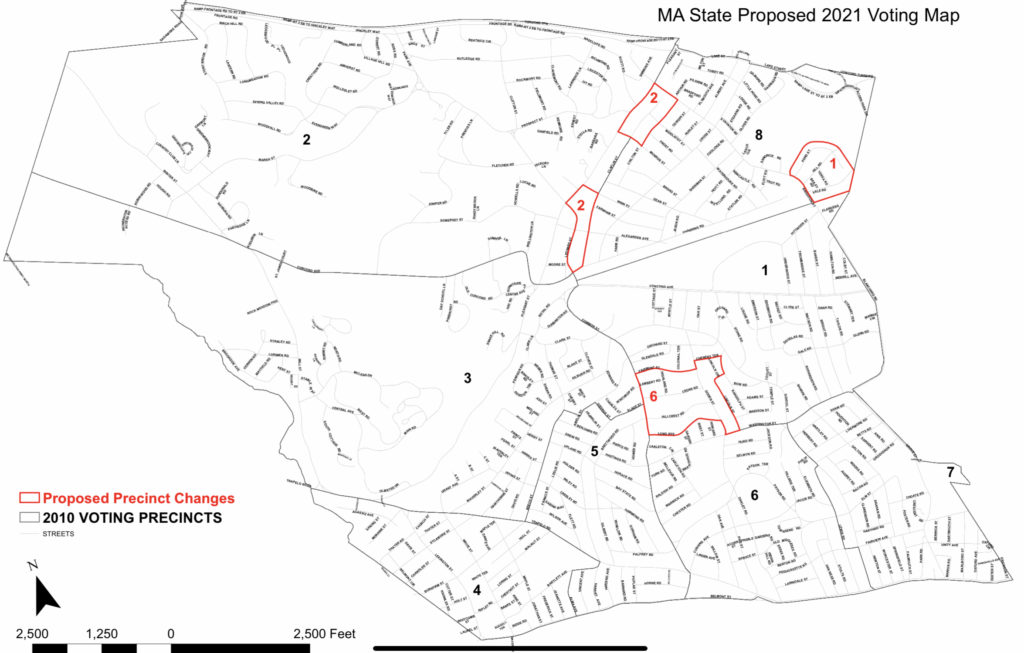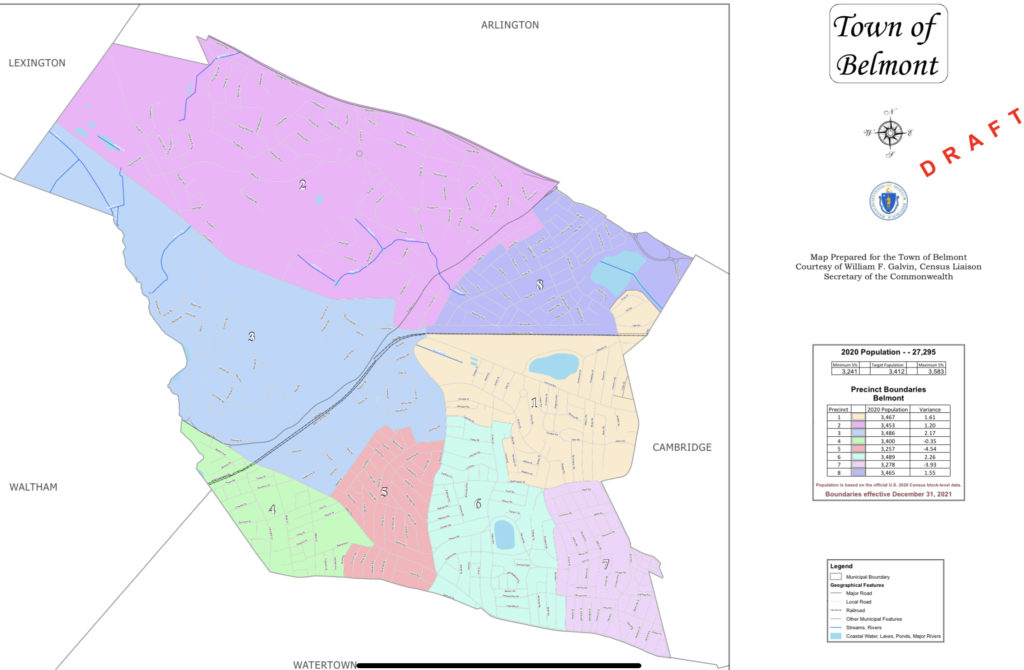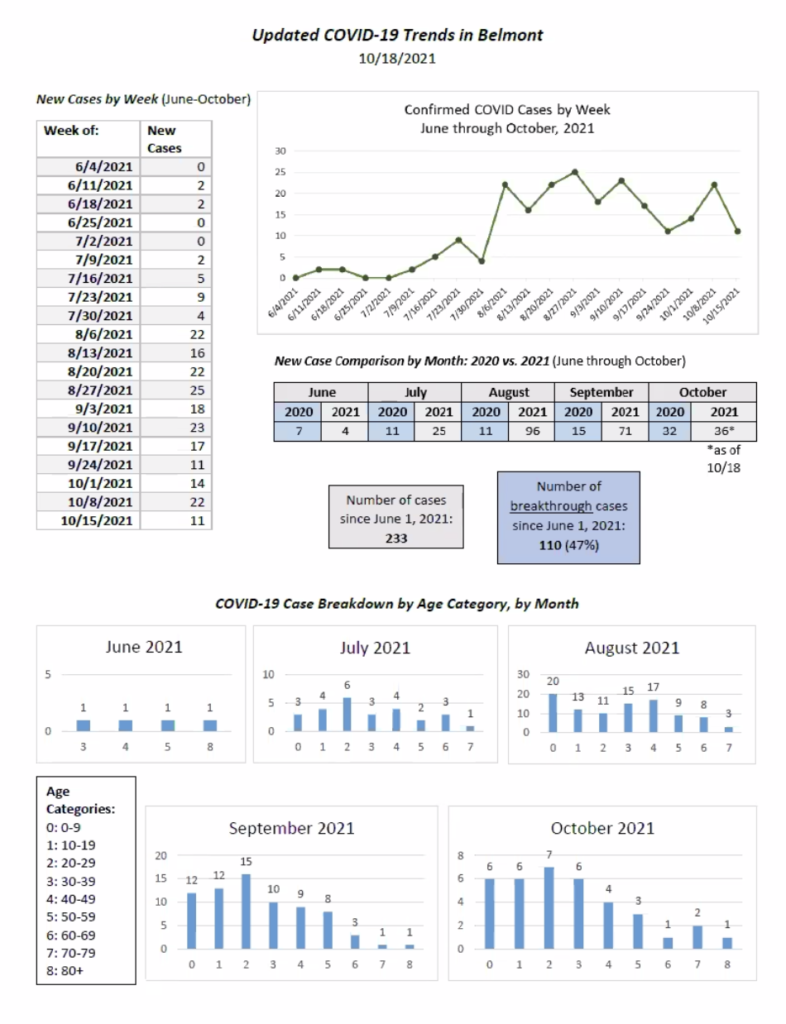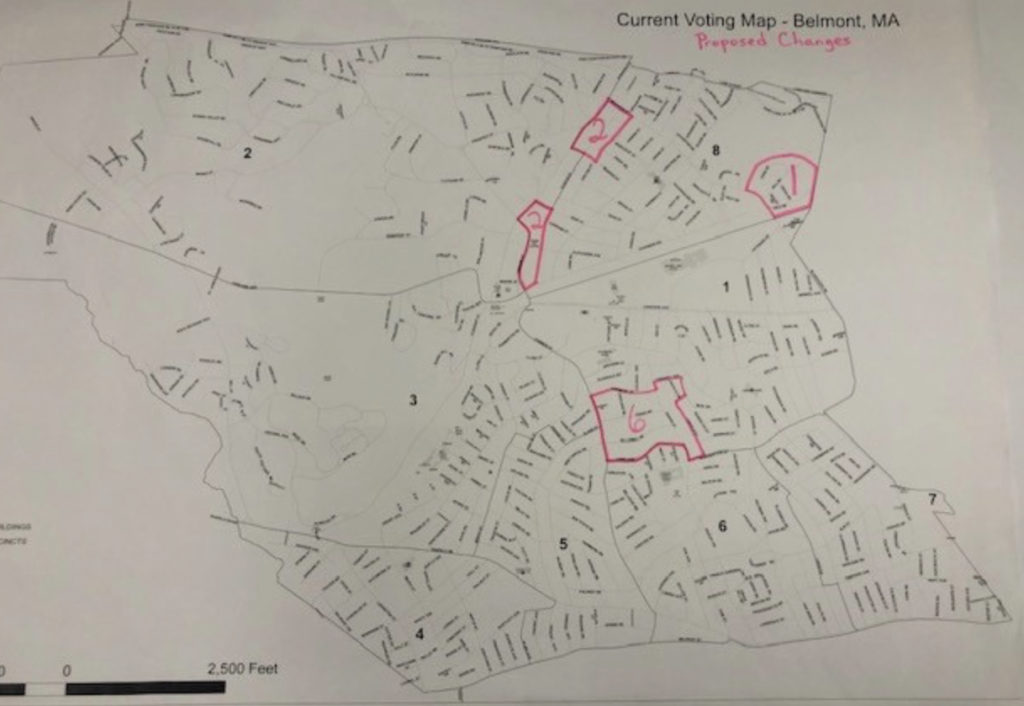Photo: Belmont Police Chief James MacIsaac
Just more than a year after a controversal Special Town Meeting article allowing Belmont’s public service departments to exit the state’s civil service program would implode before being brought to the floor, it appears the Select Board will push for a second go-around of the contensious proposal before Belmont’s annual Town Meeting in the spring.
”We have to talk about revisiting leaving the Civil Service again … because we can not go on like this,” said Select Board Adam Dash after hearing from Belmont Police Chief James MacIsaac at its Oct. 4 meeting of the difficulties he’s had attempting to fill positions at the police department in the past two years.
During an update of the department, MacIsaac referred to “an on-going problem” filling four open positions – which included one officer who was laid off due to the defeat of the 2021 override – for patrol officers since October of 2020. MacIsaac said he received five resident applications from the Civil Service candidates list. Of those, one withdrew, another was older than the department’s age limit, and two failed the physical abilities test to enter the police academy.
This year, after a Belmont officer transferred, MacIsaac once again faced trying to fill four open slots. In September MacIsaac received two lists from Civil Service, comprising of 30 residents and non-residents. Five resident and one non resident signed up for the application process.
”As a manager of a department, I don’t have to tell you how important it is in this day and age to fill four positions with six candidates,” said MacIsaac.
While hopeful that some of the candidates can pass the series of exams and tests to become a patrol officer, MacIsaac said that his department “can’t continue to operate the way we’re operating with these vacancies when we need them filled.” He pointed to two superior officers off on National Guard duty and an incident where officers were required to accompany and stay with a prisoner to the hospital all which taxes the entire department.
”It’s been a tough year to manage the operations” of the approximately 50 member police force, said MacIsaac, who praised the employees for doing “an excellent job” adapting and improvising for what they have to work with.
“They deserve a lot of credit,” said MacIsaac.
“It sounds like a real life example of why Civil Service is not working for the town,” said Dash.
MacIsaac pointed to the non-Civil Service Police Department in Norwood which received more than 100 candidates for its entrance exam. He also gave testimony up on Beacon Hill for a bill authored by State Sen. Will Brownsberger that would allow any graduate from a Belmont high school would receive the same residential preference as residents.
When asked by Select Board member Mark Paolillo on how being removed of Civil Service could impact diversity on the force, MacIsaac said “it would certainly give you the opportunity to diversify the candidate pool.”
Supporters of ending civil service contend the town would see significant cost savings by ending a 105-year-old arcane system for hiring and promotions, replacing it with a locally-focused practice that can increase the racial and ethnic diversity of the force.
Opponents – made up last time of the rank and file of Belmont Fire and Police and resident supporters – said by altering age limits of candidates and increasing diversity in the number of candidates through changes to the existing agreement can reach those goals.
It appears the Select Board is envisioning a debate in the spring.
“We have to think about a spring Town Meeting” to revisit Civil Service, said Dash.



